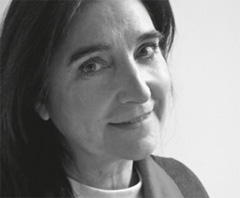|
Katerina Palaska, Speech & Culture Workshop, University of Thessaly
NEOS TIPOS Newspaper, 10 December 2006
"The teacher whose head became a saucepan"
How can a primary school teacher manage to teach in such a way that her pupils become ‘the happiest, most creative and most responsible pupils in the school’? You only have to read The Teacher Whose Head Became a Saucepan to understand how Mrs Vasso Halali introduces a successful and imaginative new way of teaching children in which her class becomes a hive of activity and an endless hunt for knowledge – endless because “knowledge is impossible to catch, since it is always on the move”. …Can there really be people who want to place obstacles in the path of such progressive teachers, dampening their pupils’ possibly noisy enthusiasm and putting both in the straitjacket of conformity?
This is a book that gives answers to such questions and expresses in no uncertain terms the view that modern educational techniques are pupil-centred and aim not only at the acquisition of knowledge but at developing pupils emotional, physical and spiritual coordination by developing their capacity for critical thinking. This is a book that is to be recommended not only for children but most definitely for their teachers as well, for it is time we came to realize that education can be reformed by making it an adventure filled with humour and imagination. In this way, learning becomes a game. For learning is like a piece of candy. You feel happy when it’s melting in your mouth and afterwards it leaves such a pleasant taste that you want another and another and another.
Once more, the well-known author Sophia Madouvalou attempts by means of her exceptionally engaging style of writing to explain to readers both young and old that no change in the educational system should alarm us, nor new ideas appear outrageous, but that we should keep open both our minds and eyes, since children ‘must develop their imagination, which goes hand in hand with their eyesight’ and helps them to see far. For life must acquire a visionary quality and without imagination this cannot be achieved.
|




